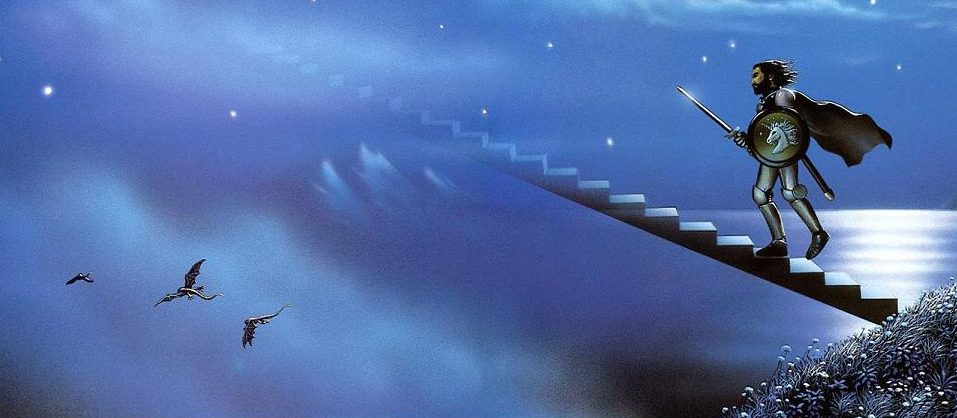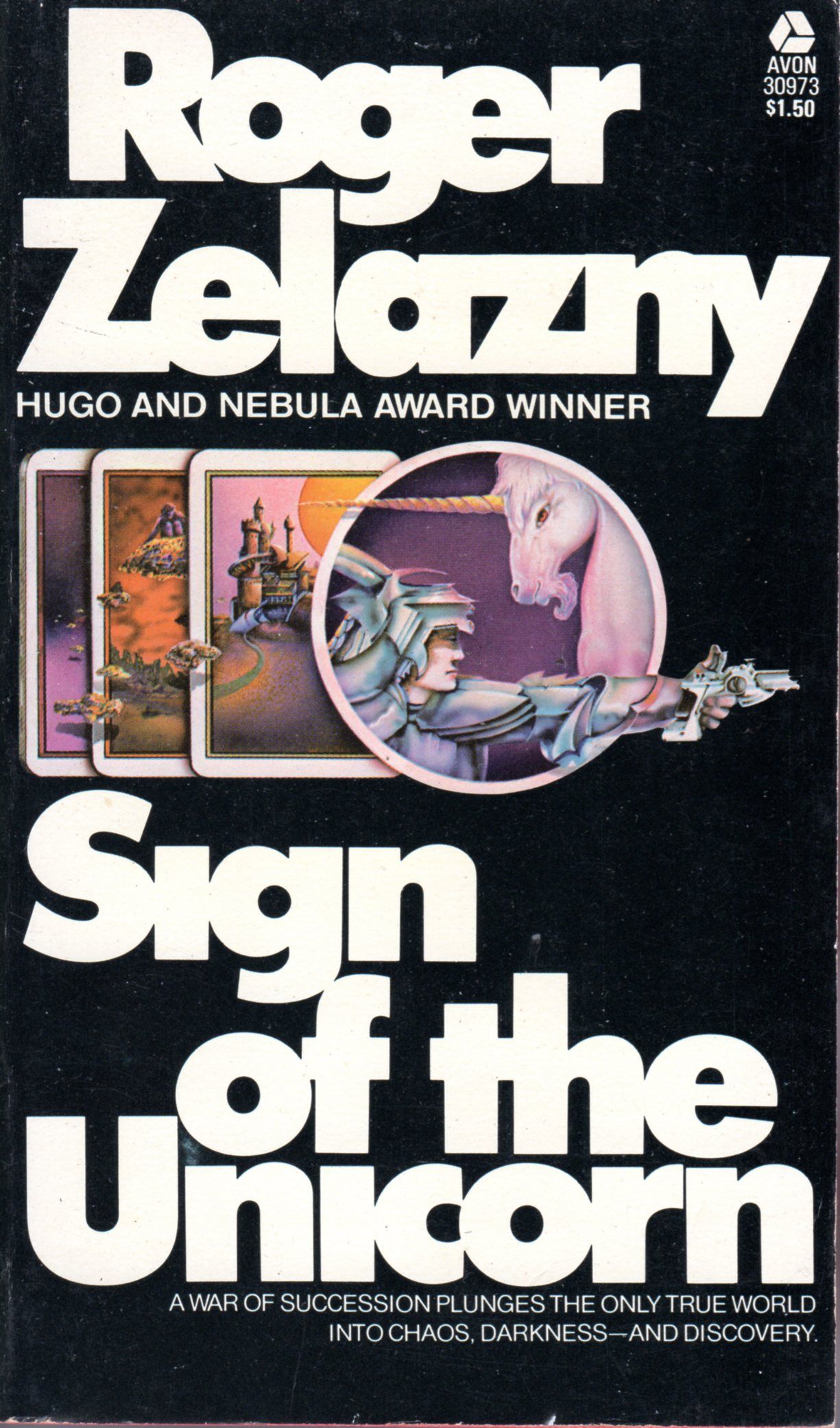

“It is as if I were one of those minor characters in a melodrama who gets shuffled offstage without ever learning how things turn out.”
I cannot understand what makes this series popular. The third book in Roger Zelazny’s Chronicles of Amber, Sign of the Unicorn, is marginally better than the first two, but is still miles away from a polished fantasy novel, reading more like a rough draft of some throwaway ideas than a fleshed out tale of noble born siblings, double-crossings, and magic. It is not a good sign that what makes this volume better than the first two is that much less happens.
As I suggested in my reviews of the first two novels, I like the world that Zelazny has created here, where the realms of Amber and Chaos are the true reality, and others—such as the one the reader is familiar with—are just shadows of them. Corwyn, a member of the royal family, begins telling the story while recovering from retrograde amnesia. Unfortunately, his gradual recovery of memory is used haphazardly throughout, allowing him to be arrogant when he can remember something of his superhuman lineage, and timid when he struggles to jog his memory. This trend continues in Sign of the Unicorn.
With Corwyn now Regent after Eric’s death, someone murders another brother, Caine, and frames Corwyn. The present members of the family gather and discuss how to deal with the situation, which leads to an attempt to retrieve long-lost brother Brand from a shadow realm via the mysterious Trump cards (something like Tarot cards with the family members’ faces on them). As they pull the weakened Brand through the Trump, someone quickly stabs him in the side, and likewise, Corwyn is stabbed when he retires to his chambers that evening. Both survive, and Corwyn wakes up back on Earth.
For me, this was the most memorable portion of the book, as Corwyn is confronted by his former neighbor who recognizes him as Carl Corey. His neighbor offers him aid, but he is curious because Corwyn appears not to have aged and he did not see footprints leading into Corwyn’s house, only out. It effectively evokes an eerie sense of otherworldiness, punctuated by Corwyn’s admission to his neighbor that he is not a human being.
There are many more crazy things that happen than Corwyn appearing in his old home without walking to it, but that scene was mostly self-contained and simple which made it effective. Things like fighting with prismatic glass dragons, metaphysically traversing through a powerful jewel which elevates one’s awareness, teleportation, weather control, and unicorns all make appearances, but they have little explanation within the text and so fall flat. Likewise, loads and loads of discussion of family politics are covered via bland conversation and seem to go nowhere, talking about characters that barely concern the story so far. We also learn that in addition to being expert marksmen and swordsmen, scary intelligent, master battle strategists, superhumanly strong, etc. the members of the royal family are also trained surgeons.
Toward the end of the book, Corwyn and two of his brothers enter a dream-world-in-the-sky (never before mentioned in the series) where Corwyn’s sword suddenly has enhanced powers. Zelazny writes nearly the entire thing in a weird style full of ellipses and impressionistic language, e.g. “A raft of moonbeams . . . the ghostly torchlight, like fires in black-and-white films . . . stars . . . a few fine filaments of mist . . .” which doesn’t really tell the reader what is happening at all. This contrasts awfully with the overly descriptive fight scenes which are basically how I envision someone takes quick notes on a boxing match, e.g. (paraphrased), “I grabbed his left wrist, twisted hard. He punched my right shoulder. I turned a bit to get a better angle, then I jabbed at his midsection. He blocked my blow, responding with his own.”
At the end of the book, when they try to return to Amber, they find a plateau instead of a city, bearing upon its surface the true Pattern (an inscribed labyrinth that members of the royal family can walk in order to traverse shadow worlds). It’s almost a breathtaking moment, but after so many elements coming out of nowhere and causing large narrative shifts, it fails to register as more than a blip, perhaps gaining some prominence because it is situated as a cliffhanger.
I just don’t see what many others seem to see in this series. Zelazny’s writing style is pedestrian, his storytelling lacks any sort of structure (and it’s not experimental; it’s just bad), and his narrator is insufferable. The single chapter that is narrated by Random—which I suppose deserves some credit for being thrown into an otherwise single POV book—is a welcome change of tone and pace; but then why make the reader suffer through Corwyn’s retelling of the tale?
Zelazny certainly had lots of ideas bubbling around in his brain, but he simply spews them out in a stream of fantastical but meaningless imagery, causing the events to blur into an indistinguishable mess of scenes. The characters all lack motives for their actions because Zelazny literally created a universe where the main character could create his own world and do whatever he wants, like Random, who was gambling, hang-gliding and playing a drum set to his heart’s content at the beginning of the novel. It’s just utterly unremarkable, and only better than the two that came before it because it includes slightly less ridiculous elements and deus ex machina (though both things are still very annoyingly present).